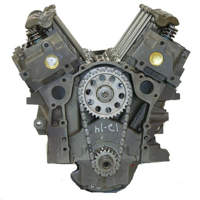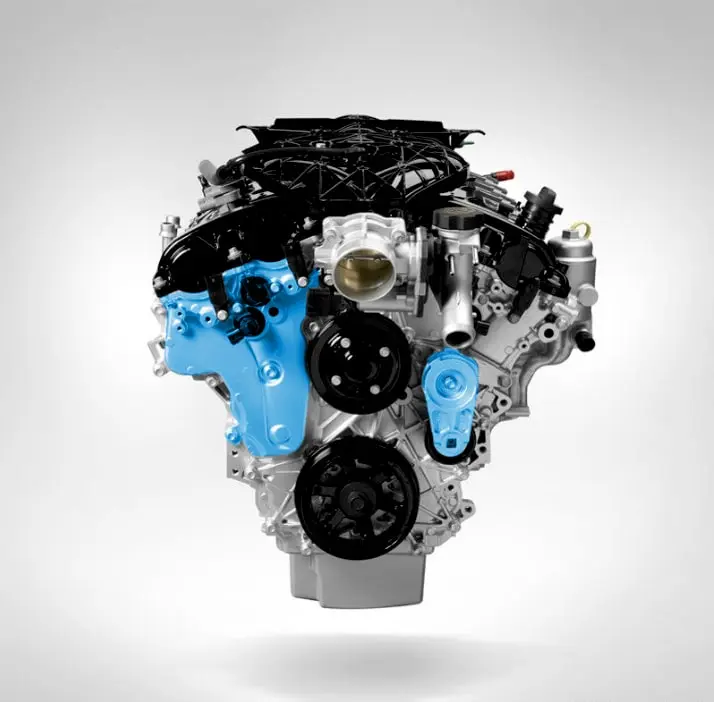Is the 2.2 Ford Ranger Engine the Right Fit for Your Driving and Work Needs?
Is the 2.2 Ford Ranger Engine the Right Fit for Your Driving and Work Needs?
Blog Article
How to Select the Right Car Engine for Optimum Efficiency and Effectiveness
Picking the proper auto engine to attain an ideal balance of efficiency and effectiveness demands a nuanced understanding of numerous engine types and their details characteristics (2.2 ford ranger engine). Elements such as engine variation, the number of cylinders, and fuel type play a crucial duty in identifying both power output and gas economy.
Comprehending Engine Types
When picking a cars and truck, among one of the most critical components to think about is the engine type, which serves as the heart of the vehicle. The engine type substantially affects the auto's overall efficiency, durability, and viability for your driving demands. There are primarily 3 engine kinds to take into consideration: inner burning engines (ICE), hybrid engines, and electric engines.
Interior combustion engines remain the most common, operating gasoline or diesel. They are recognized for their power and velocity, making them ideal for performance-oriented lorries. They might drop short in fuel effectiveness and environmental impact.
Hybrid engines incorporate an interior combustion engine with an electric motor, supplying an equilibrium between performance and fuel economic climate. They are increasingly prominent for chauffeurs seeking lowered emissions while still providing sufficient power.
Electric engines, powered entirely by batteries, are getting traction due to their environmental advantages and lower running prices. They give instantaneous torque and a peaceful driving experience, making them suitable for urban travelling.

Performance vs. Effectiveness
Selecting the ideal engine type entails considering the trade-offs between performance and effectiveness. Performance usually refers to how well an engine can provide power and velocity, which is commonly linked with larger displacement engines or those with turbocharging capacities. These engines usually give exciting driving experiences and fast action times, making them popular among enthusiasts.
On the various other hand, efficiency focuses on fuel economic situation and reduced discharges. Smaller engines, specifically those equipped with advanced modern technologies such as straight gas injection and variable shutoff timing, have a tendency to supply better miles per gallon and minimized carbon impacts. While these engines might sacrifice some power compared to their larger counterparts, they usually excel in everyday driving scenarios where high performance is not constantly essential.
Eventually, the choice in between performance and effectiveness depend upon individual top priorities. A vehicle driver who values spirited driving could prioritize a high-performance engine, while someone seeking economical travelling might favor an effective choice. Recognizing these compromises is essential for making a notified choice that aligns with your driving demands and way of life, guaranteeing that the picked engine type complements your expectations for both performance and efficiency.
Key Specs to Think About
Understanding crucial requirements is vital for making an educated choice about the right car engine. When picking an engine, a number of crucial variables call for factor to consider to make sure optimal performance and efficiency.
It suggests the total quantity of the engine's cyndrical tubes and normally correlates with power result; bigger variations often yield even more power. Engines with more cyndrical tubes can supply smoother procedure and greater power, while smaller sized arrangements can enhance fuel effectiveness.
In addition, the engine's arrangement, whether inline, V-type, or rotating, affects the overall design and performance attributes of the lorry - 2.2 ford ranger engine. Turbocharging and supercharging innovations should likewise be reviewed; these increase an engine's power output without dramatically boosting its dimension, therefore enhancing performance
Gas kind is another crucial factor to consider, as it impacts both efficiency and prices. The engine's compression proportion influences efficiency and power distribution; a higher ratio usually leads to better effectiveness, yet may need exceptional fuel. By carefully assessing these specifications, you can choose an engine that aligns with your performance and efficiency goals.
Examining Driving Demands
Examining driving demands is a basic step in establishing the appropriate vehicle engine for your lifestyle and usage patterns. Begin by assessing your daily driving habits, including the frequency and duration of trips. If your driving mostly consists of short commutes in city atmospheres, a smaller engine with great fuel performance might be adequate. Alternatively, if you frequently carry out long-distance journeys or need towing capabilities, an extra effective engine may be needed.
Consider the surface you commonly her explanation browse. Hilly or sturdy landscapes might require an engine with higher torque for better performance. Additionally, assess guest and cargo needs; bigger families or those who transfer products might take advantage of vehicles with enhanced power and capability.
It's likewise vital to examine your gas choices. Diesel motor commonly supply remarkable torque and gas economic climate for heavier lorries, while gas engines might provide a smoother and quieter experience. Aspect in ecological considerations, as hybrid or electrical engines can give a more sustainable choice without sacrificing efficiency. By completely web link comprehending your driving demands, you can make an enlightened choice that aligns with both performance expectations and effectiveness objectives.
Future Trends in Engine Technology
As the automobile market continues to evolve, developments in engine technology are paving the means for extra sustainable and efficient driving experiences. One significant fad is the change toward electrification, with crossbreed and totally electrical powertrains gaining prominence. Car manufacturers are spending greatly in battery innovation to enhance power density and lower billing times, eventually improving the usefulness of electrical automobiles (EVs)
Another arising trend is the growth of hydrogen gas cell engines. 2.2 ford ranger engine. These systems use the potential for zero-emission driving while providing refueling times similar to typical fuel engines. Furthermore, advancements in combustion technology, such as variable compression ratios and enhanced turbocharging, are maximizing conventional inner burning engines for much better efficiency and efficiency
Digital integration is additionally a crucial element of future engine modern technology. The implementation of expert system and artificial intelligence permits real-time information analysis, enabling smarter engine administration systems that adjust to driving problems and improve fuel efficiency.

Verdict
To conclude, picking the appropriate automobile engine requires a comprehensive examination of numerous factors, including engine kind, performance demands, and effectiveness objectives. By understanding the distinctions in between different engine types and thinking about key specs, individuals can align their choices with particular driving requirements. As advancements in engine technology continue to emerge, staying educated regarding future fads will certainly better boost decision-making, eventually leading to a vehicle that balances performance and gas effectiveness properly.
Picking the proper auto engine to attain an optimal balance of efficiency and efficiency demands a nuanced understanding of different engine kinds and their details characteristics. There are largely 3 engine types to think about: internal burning engines (ICE), hybrid engines, and electrical engines.
Performance normally refers to exactly how well an engine can provide power look at more info and acceleration, which is often associated with larger displacement engines or those with turbocharging capacities. Diesel engines commonly use exceptional torque and gas economic climate for much heavier vehicles, while fuel engines may supply a smoother and quieter adventure.In conclusion, picking the proper car engine demands a thorough examination of various variables, consisting of engine type, efficiency demands, and efficiency objectives.
Report this page